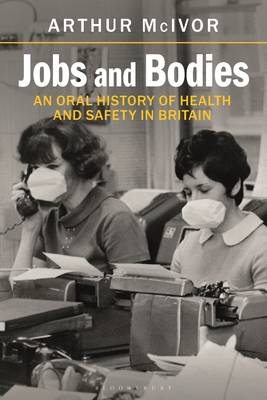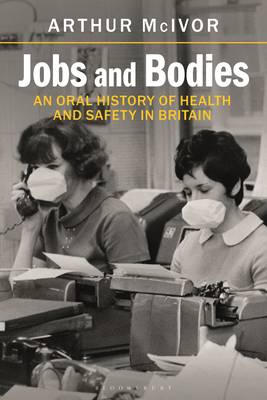
- Afhalen na 1 uur in een winkel met voorraad
- Gratis thuislevering in België vanaf € 30
- Ruim aanbod met 7 miljoen producten
- Afhalen na 1 uur in een winkel met voorraad
- Gratis thuislevering in België vanaf € 30
- Ruim aanbod met 7 miljoen producten
Zoeken
€ 40,45
+ 80 punten
Uitvoering
Omschrijving
In the early 21st century, radically changing work locations and patterns have jolted society to reflect more on the ways that employment affects the body and the mind. This book provides historical context and insights to aid our understanding of this contemporary crisis, critically examining the history of a neglected area.
In this oral-history based study, Arthur McIvor explores the history of health and safety from Second World War to the present, drawing extensively upon workers' own personal stories of occupational accidents, disasters, injury, disease, overwork and disability. It covers a wide range of workplace issues, from stories of TNT poisoning and overwork in wartime, through to the asbestos and black lung disasters, and the modern-day 'epidemics' of stress, burn-out and Covid-19. Opening conversations surrounding the harms caused by work, this book analyses how people have lived with occupational illness and disability, critiquing risk and work-health cultures, and the structural violence characteristic of industrial capitalism and neoliberal economics, in addition to discussing the agency of big business and advocacy of workers and victims. Focusing on class, gender, disability and race, this book uses an impressive range of secondary and primary sources, including government reports and enquiries drawing upon workers' testimonies, Mine and Factory Inspectors Reports, HSE papers, newspapers, Mass Observation responses and oral history interviews.Specificaties
Betrokkenen
- Auteur(s):
- Uitgeverij:
Inhoud
- Aantal bladzijden:
- 304
- Taal:
- Engels
Eigenschappen
- Productcode (EAN):
- 9781350236219
- Verschijningsdatum:
- 30/11/2023
- Uitvoering:
- Paperback
- Formaat:
- Trade paperback (VS)
- Afmetingen:
- 156 mm x 234 mm
- Gewicht:
- 426 g

Alleen bij Standaard Boekhandel
+ 80 punten op je klantenkaart van Standaard Boekhandel
Beoordelingen
We publiceren alleen reviews die voldoen aan de voorwaarden voor reviews. Bekijk onze voorwaarden voor reviews.











